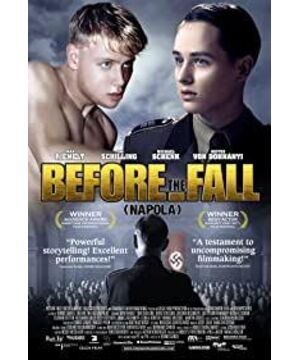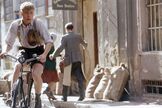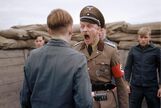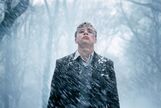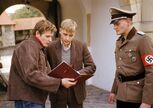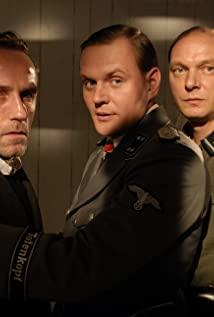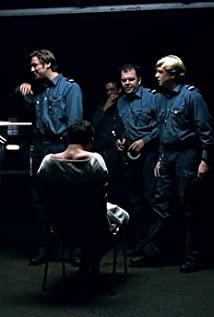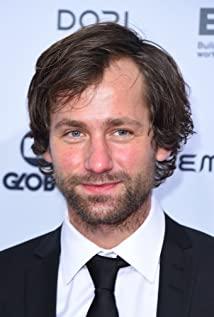successive years of war, which caused the German people in 1942 to actually be living in a lot of hardship. There was a shortage of military supplies at the front and supplies at the rear. This lens intuitively shows us the situation of a family living at the bottom of the society, and material poverty also makes the 17-year-old Fiedler determined to "get ahead"...
2. The mother's letter
mentioned the details of a father who was summoned by the Gestapo. There are two intentions here: one is to show that the secret police in Germany are monitoring ordinary people with great difficulty, and the other is to imply that the father may be engaged in some "progressive" activities.
3. After the instructor "Dog jumps into the pit"
after the stringed grenade fell into the training pit, the handling method chosen by the experienced instructor was to jump into the pit and escape by himself. It is indeed a bit puzzling here. The only explanation is Deliberately "demonizing" the Nazi training system. Reminiscent of a similar scene in a French film on the theme of World War II "Glorious Years": Recruit Dan’s grenade was pulled by mistake, and he was at a loss with panic. His superior quickly picked it up and threw it out... at this point I didn't believe that the Germans, who were known for their iron will, would lose to the French.
4. The slaughtered Soviet child soldiers
unarmed group of "Soviet deserters" became a vivid "practice class" for the Nazi recruits. In that cold night, they fell under the gun one by one... This indictment, I personally think, is the most shocking description in this anti-war film. Not only gave the brutal ending of an Albert's father shooting all the child soldiers, but more importantly, it gave all peace-loving people a helpless revelation: in the war, all civilians become executioners in military uniforms! Those faces as young as Albert once lived a happy and healthy life in their home country, but now they have to wear Soviet military uniforms and become cannon fodder on the battlefield... It doesn’t matter whether you are a German or The Soviets, or XX people, as long as your country has experienced the war unfortunately, in the worst moments, no matter for any reason, you must respond to the call. This is a fate that you cannot escape! Throughout World War II, the population of young and middle-aged people in the Soviet Union declined sharply, and widow villages emerged one after another. This is the misfortune of the times, and it is also the inevitable root of humanity as a whole.
5.1 In the winter of 942,
this was an essay topic in the language class of the military school. It is also a watershed in the final fate of Fiedler and Albert. They both left Napola in the winter of 1942, but the difference was. One person deliberately gave up the "Splendid Future" and chose to leave, but one person chose to indulge in the cold bottom of the lake forever under the fate of being unable to control... The winter of that year, the snow was heavy, and Fiedler looked back and glanced. This place once brought him pride, honor and dignity, turned around and continued to walk towards an uncertain future.
View more about Before the Fall reviews


